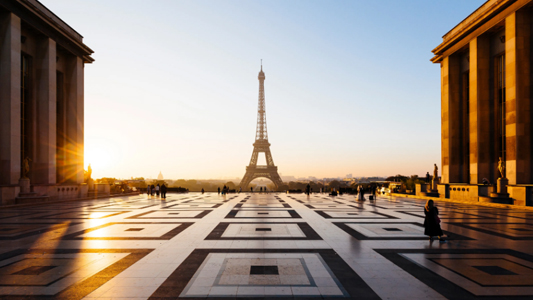On my first trip to Paris, during January of my senior year in college, I was enthralled by its ancient-ness, vague subversiveness, free spirit, and elegance. I climbed the many steep stone steps to the top of Notre-Dame and hung out with the horned and winged gargoyles perched there, keeping scornful eyes on the city, and sticking their tongues out at it since the Middle Ages. Around midnight one night, while walking back to our cheap hotel, my companions and I saw several locals furtively pushing a cream-colored Rolls Royce down the cobbled street. Were they stealing it? I was mystified by the simple sophistication of French women, who usually seemed to wear close-fitting jeans, scarves, and long flowing raincoats. My baggy jeans and bulky coat labeled me as an American as clearly as if I had scribbled my nationality across my forehead.
I visited Paris again two years later, when I was a graduate student at l’Université de Nice for a year. My command of the language had improved greatly, thanks mainly to a group of Moroccan, Italian, and French students who took me under their wing. A friend of a friend let me stay in her tiny, rented room while she was away. It was in a typical Parisian building the color of unbleached linen, with a roof of gray-blue zinc, that dated from the grand redesign of the city in the late 1800s. The room had been originally a servant’s quarters and the bathroom facilities down the hall consisted of a Turkish toilet, basically a hole in the floor that flushed with the pull of a hanging chain. No matter. I had felt free and soulful as I roamed the labyrinthine city streets, envisioning the ghosts of the writers, artists, and philosophers who had roamed them before me. I often got lost, of course, but that was part of the thrill of exploring the countless quirky corners throughout the city. I avoided touristy spots, such as the Eiffel Tower, feeling that I had more in common with the inhabitants of the city than with the boisterous and sometimes arrogant American visitors.
I had become a flaneur, a detached wanderer leisurely strolling through the city while closely observing street life. Or, in the words of Baudelaire, perhaps the first self-professed flaneur: To be away from home and yet to feel oneself everywhere at home; to see the world, to be at the center of the world, and yet to remain hidden from the world…. On my way back to Nice, as the train moved along the tracks, jostling me in my seat in the dark, I made a vow to return one day and then drifted off to sleep.

